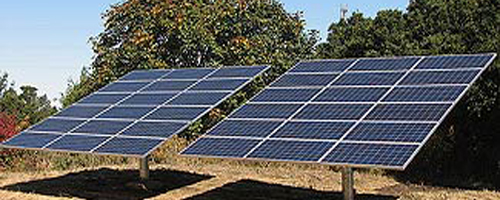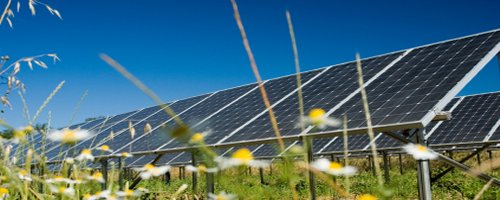Meeting energy needs is a growing problem that every country faces today. Fossil fuels have been our mainstay for some time now but due to depleting resources and the adverse impact it has on the environment, the search for cleaner and a renewable energy source is on.
One of these sources is solar power, and according to reports, this form of energy can not only counter the rising prices of their utility bills but also contribute to their savings as well.

Yet is this all just hype or is investing in solar energy an excellent proposition?
So, here are a few FAQs that might just help you evaluate how worthwhile an investment in solar panels just might be:
#1: Is Solar Energy right for my home?
Several factors go into making solar energy right for your home. Firstly, a good south-facing roof is required for maximum sun. Also, before installation, the structural integrity of the roof, the material it is made of and the shading on your roof will be taken care of. In taking all these factors into consideration, it’s only then will you find out whether solar energy is right for your home or not.
#2: How much does solar energy cost me?
Barring state incentives, each watt of solar electricity costs about $ 10 to $ 12. While an effective solar power system could cost about $ 20000, it’s also important to know how much power you would normally use every month. Based on those figures, you can install a decent solar power system if you have the money to spend.
#3: How long will a home solar power system last for?
Almost any home solar power system that you will find lasts anywhere between 25 to 35 years. The reason for this is because there aren’t any moving parts. However, regular maintenance is the key to using it for a long time. Also, the inverter generally needs to be replaced every 10 years.
#4: How much sun and roof space do I need?
Firstly, it doesn’t matter where you live in the country but what does is the fact that your roof faces the south, east or west as this means maximum exposure to the sun. As for the amount of roof space required, every kilowatt (kW) requires at least 100 square feet of space. Most home solar power system range from 3 kW to 6 kW and so, when you do the math, it amounts to about 300 to 600 square feet.
#5: What about insurance to protect my investment?
If you’ve insured your home, then as soon as you add these solar panels to your home, the company will have to insure them just like the rest of your household items.
#6: Do I need a new roof?
It is not mandatory to replace your roof, but it is highly recommended to have it repaired. The solar system is supposed to last for at least a couple of decades, so your roof should be in the same situation. If it is older than fifteen, make sure you perform all the reparations it might need.
#7: Should I try a ground mounted system?
A ground mounted system is useful when the roof cannot handle it. You should also have some extra room on your property. There are also people who go directly with this option, only to avoid the harsh inaccessibility to their roofs.
#8: Is the homeowners association able to stop my project?
It is free to try, but it is not legal in most of the states. According to the laws, you cannot be stopped. However, the association may ask for some changes. If the design is not appropriate, you might end up with some requests to change it, but only if these changes will not affect your production with more than 10% of $2,000.
#9: What happens during the night?
During the night, the electricity production is obviously ceased. However, as soon as the sun is up, your system will restart the production. The mornings are not too profitable from an electric point of view. You may, however, use an espresso machine, a toaster or a hair dryer. You spend the electricity as you produce it and only if you wake up really early. Normally, you will have enough for basic needs.
#10: How often do I need to clean the panels?
The panels don’t require too much maintenance, unless you end up with some extreme cases. For instance, a nearby forest fire might cause some problems. Otherwise, there is nothing to worry about. After years of usage, you might observe a slight decrease in the production. That is when you need to clean them.
#11: What happens during extreme weather conditions?
Rains will not affect the production. A cloudy day might reduce your production with up to 70%. You will still have enough. The same happens when it snows. However, a snowstorm might be more problematic, but the snow on your panels will be the first to melt due to the position, so your production will be back on track in no time.
#12: How does the system work?
Every month, you must pay for the electricity you use to your utility. The prices grow on a regular basis. With a solar system, you can forget about these rates. You control how much you pay, as you are always protected against the extra charges.
#13: How much can I save?
During the first months, you savings will be modest and not very relevant. As time goes by, they will increase. At some point, your incoming bills will be almost null. The system is profitable in the long term and not just after a couple of months.
#14: What happens after I register?
The installation will be done in a few days, depending on the request. You will be allowed to turn on the system after one to two weeks. There are multiple factors to consider in the process.
#15: How do I pay for the electricity I use?
Right now, you get monthly bills from your utility. These bills will still show up, but they will be a lot smaller.
#16: What if I move to a new house?
The contracts are easy to transfer. Most homeowners also choose to sell the system, which is actually a solid upgrade to the home. There are no problems in transferring the contract to the new homeowner.
#17: What happens to my utility after I get this system?
Nothing happens. You will still be connected. When you produce more energy, you will earn some credits. When you end up in a cloudy day, you will use those credits.
#18: Can I improve my system later and add more panels?
It is possible, although this is a complicated process. You will also need an inverter. The solar panels and the inverter come in a mini system. The process is complicated because the panels go together like a puzzle, but it can be done.
#19: What happens when the power goes out?
When the power goes out, your system will entirely stop producing electricity. In such situations, a team of professionals will most likely get over and fix the problem
#20: Who installs my system once I sign up?
Once you get the confirmation, a team of professionals will come to your place and perform the installation. These individuals have the proper experience and knowledge to perform high quality work.



